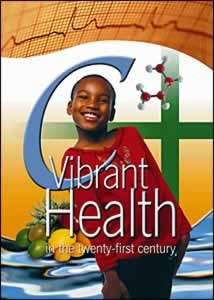|
| ||||||||||||
EXERCISE
EXERCISE
According to the Center for Disease Control (CDC), only 23% of Americans get any regular light to moderate physical activity. In light of this information, is it any wonder that we are in the middle of an obesity epidemic? Regular physical activity decreases our risk for many diseases including: obesity, high blood pressure, coronary heart disease, stroke, diabetes, osteoporosis, many cancers, anxiety and depression. An ongoing study, (which began in 1984,) has been monitoring the difference between two groups of people at Stanford University: the ‘ever-runners’ and the ‘never-runners’. The health of these two groups has been tracked for nearly three decades. Not surprisingly, the data has shown that exercise is critical to health. Over the years, compared with the never-exercisers, people who exercised regularly showed improved aerobic capacity, better heart health, increased bone mass, less inflammation, less physical disability, and even improved thinking, learning and memory. They also lived significantly LONGER
The Increasing your physical activity after the age of 50 has tremendous benefits. Not only can it add 2-4 years to your life, but a recent study has shown that people who remain physically active remain disability-free for an additional 5.7 years.
So you will not only live longer, but the quality of your life will be better for a longer period of time. Of all the health habit choices we can make, maintaining physical fitness is the most important. It has been shown that burning as little as 500 calories per week has positive health benefits— That is the equivalent of walking only 5 miles/week. However, this is a case of “If a little is good, more is better.” We recommend walking 2-3 miles/day six days a week
According to the Center for Disease Control (CDC), only 23% of Americans get any regular light to moderate physical activity. In light of this information, is it any wonder that we are in the middle of an obesity epidemic? Regular physical activity decreases our risk for many diseases including: obesity, high blood pressure, coronary heart disease, stroke, diabetes, osteoporosis, many cancers, anxiety and depression. An ongoing study, (which began in 1984,) has been monitoring the difference between two groups of people at Stanford University: the ‘ever-runners’ and the ‘never-runners’. The health of these two groups has been tracked for nearly three decades. Not surprisingly, the data has shown that exercise is critical to health. Over the years, compared with the never-exercisers, people who exercised regularly showed improved aerobic capacity, better heart health, increased bone mass, less inflammation, less physical disability, and even improved thinking, learning and memory. They also lived significantly LONGER
The Increasing your physical activity after the age of 50 has tremendous benefits. Not only can it add 2-4 years to your life, but a recent study has shown that people who remain physically active remain disability-free for an additional 5.7 years.
So you will not only live longer, but the quality of your life will be better for a longer period of time. Of all the health habit choices we can make, maintaining physical fitness is the most important. It has been shown that burning as little as 500 calories per week has positive health benefits— That is the equivalent of walking only 5 miles/week. However, this is a case of “If a little is good, more is better.” We recommend walking 2-3 miles/day six days a week
|
Leading physicians and health experts, including top consultants in such areas as child health, breast cancer, heart disease and AIDS, have collaborated to produce a book in which the emphasis is upon full, vibrant health: how to attain it, how to keep it, and how to recognize the danger signals and take appropriate action.
Dr Clemency Mitchell, the chief medical editor, has been at the forefront of the nutritional revolution. She outlines a health regimen – including diet, exercise and stress control – that will greatly improve your quality of life immediately and (according to the latest medical research) help you to avoid the major killer diseases. Vibrant Health is the comprehensive guide to health for all the family. It covers everything from back pain to pregnancy, smoking to AIDS, baby care to correct breathing, whole foods to weight control and allergies. For emergencies, there are simple home treatments and effective first aid guidance. |

